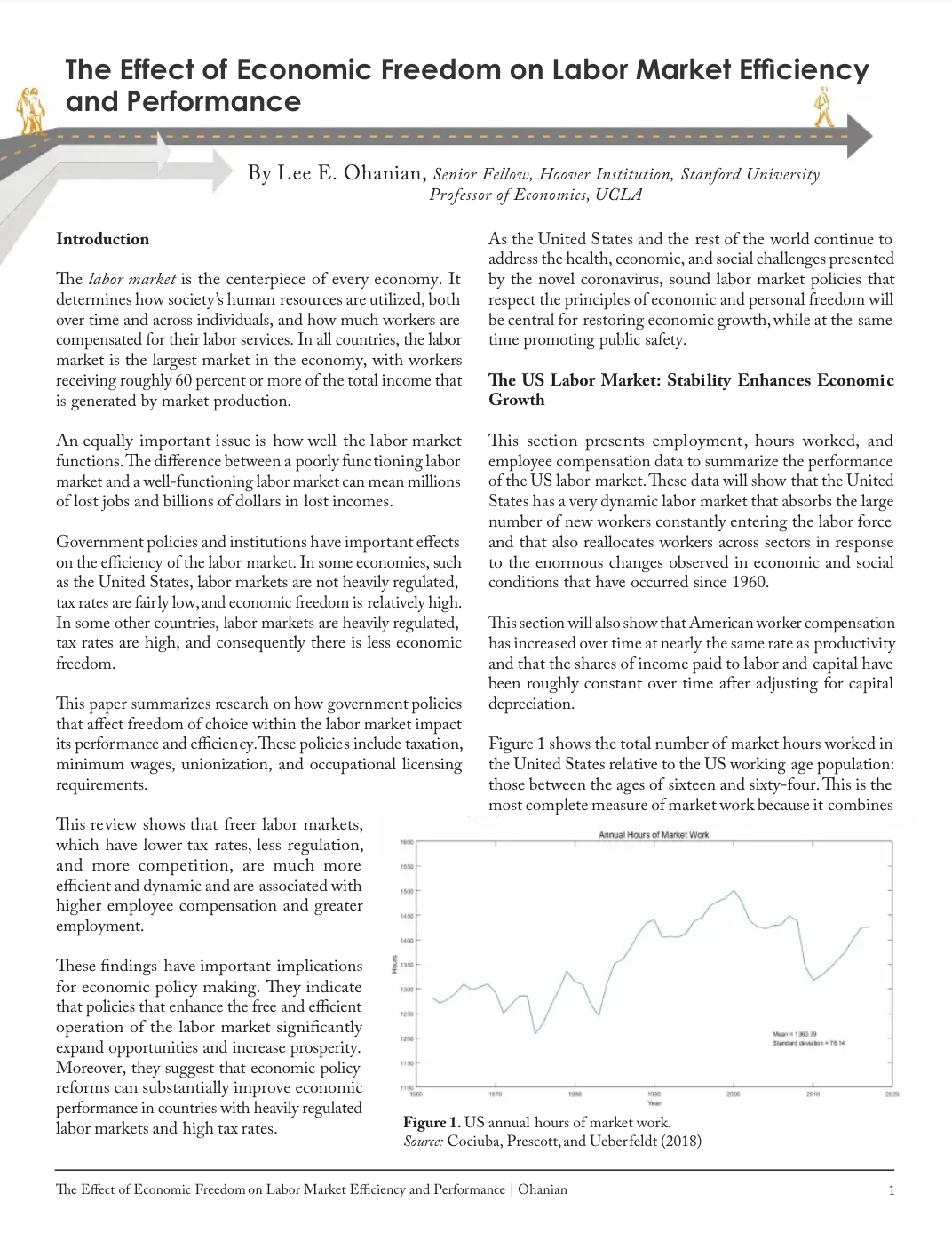Featured Publication
 The Effects of Economic Freedom on Labor Market Efficiency and Performance
The Effects of Economic Freedom on Labor Market Efficiency and Performance
By Lee Ohanian
The labor market is the centerpiece of every economy. It determines how society’s human resources are utilized, both over time and across individuals, and how much workers are compensated for their labor services. In all countries, the labor market is the largest market in the economy, with workers receiving roughly 60 percent or more of the total income that is generated by market production.
An equally important issue is how well the labor market functions. The difference between a poorly functioning labor market and a well-functioning labor market can mean millions of lost jobs and billions of dollars in lost incomes.
Government policies and institutions have important effects on the efficiency of the labor market. In some economies, such as the United States, labor markets are not heavily regulated, tax rates are fairly low, and economic freedom is relatively high. In some other countries, labor markets are heavily regulated, tax rates are high, and consequently there is less economic freedom.
This paper summarizes research on how government policies that affect freedom of choice within the labor market impact its performance and efficiency. These policies include taxation, minimum wages, unionization, and occupational licensing requirements.
To read the rest of the essay, click here.
